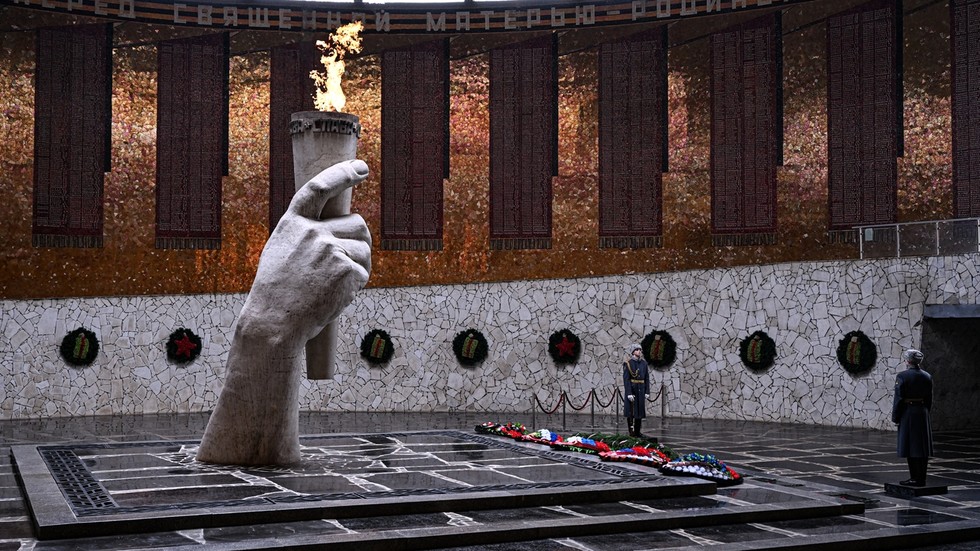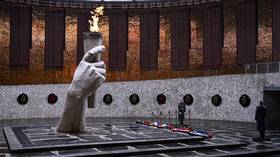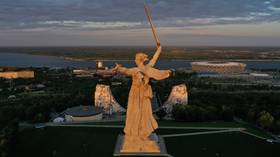
Authorities in Volgograd are seeking feedback on whether residents want the World War II-era designation to return

The Eternal Flame in the Hall of Military Glory at the Mamayev Kurgan memorial complex in Volgograd. © Sputnik/Konstantin Chalabov
The Russian city of Volgograd has launched a poll to determine if residents would be in favor of renaming it as Stalingrad, which the city was called from 1925 to 1961. Advocates of the move believe the results of the survey could force a referendum, although previous polls have indicated otherwise.
The survey was launched on Monday, and according to activist Aleksandr Sturkov it will run for one week. Sturkov is a member of a special civic council which Volgograd Region Governor Andrey Bocharov last year tasked with receiving feedback about the possible renaming.
The city was originally called Tsaritsyn (meaning “of the Tsaritsa”), taking its name from the island where Russian troops built a fort sometime during the 16th century. Due to the name’s association with the monarchy, the Bolshevik government rebranded the city in honor of Joseph Stalin in 1925.
During World War II, Stalingrad became known around the world due to the intense battle for the city, which historians have credited with turning the tide against the Nazi onslaught and paving the way for their ultimate defeat. Amid the dismantling of Stalin’s cult of personality after his death, the city was renamed again in 1961, becoming Volgograd – taking its name from the river on whose banks it is located.

Read more
There have been at least two big campaigns to restore the name Stalingrad. One was spearheaded by the Communist Party in 2013, while another emerged in 2021 and was backed by the A Just Russia – For Truth party. Since 2013, Volgograd has used its previous designation during events commemorating war victims as a token of respect.
Supporters of a name change, including high-profile politicians such as former Prime Minister Sergey Stepashin, have argued that the move would honor the city’s role in defeating Nazism. Governor Bocharov described the city’s former name as a “symbol of courage and heroism” when his administration decided to greenlight the survey.
However, critics have argued that the step would provide a boost to Stalinists. The former Soviet leader remains a controversial figure in Russia, with some willing to overlook his role in repressing the population for the sake of his perceived achievements as a statesman.
Volgograd residents generally appear skeptical about the renaming proposal. In a survey by the state-owned pollster VTSIOM conducted in February, when Russia marked the 80th anniversary of the Battle of Stalingrad, 26% of respondents expressed a degree of support for the idea, while 67% were against it.




